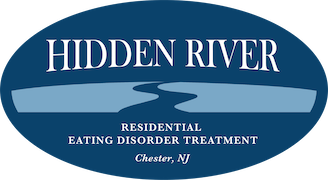Chronic Illness, Eating Disorders, and Body Image
By Tamie Gangloff
How do we recover from an eating disorder and trust our body, in a body that is differently abled with a chronic illness?
Let’s take a closer look at the connection between chronic illness, eating disorders, and body image.
Many people develop an eating disorder as a result of body image disturbance and being in a body that “doesn’t work the way it is supposed to.” Chronic medical conditions and trauma associated with complex surgeries can lead to post-traumatic stress disorder (PTSD) and other psychiatric co-morbidities. Clinicians must be able to identify trauma and body image disturbances as a result of medical conditions. We can then assess and properly treat clients with these complex issues, ultimately leading to resilience and recovery.
After a major medical procedure in 2018, I had many questions regarding my medical condition and mental health and how they are connected. As a chronic illness warrior and a clinician with lived experience with an eating disorder and alcoholism, I set out to find some answers.
I asked many questions about chronic illness and eating disorders that needed answers.
- How do you recover from an eating disorder in a body that has a chronic medical condition?
- What leads to relapse as opposed to resilience and recovery?
- What can we do, as clinicians, to treat chronic medical conditions as separate from disordered eating?
- How can we view a chronic medical condition through a trauma lens?
- What is the psychology of pain? How does this concept relate to our clients?
- Is there a difference between body image disturbance and body image distortion?
I discovered that there is an intersection between medical conditions, medical trauma, PTSD, body image concerns, and eating disorders. In an effort to learn more, I created a study. I also started to consume (pun intended) books by athletes who have overcome staggering odds for survival and resilience. These books not only gave me hope but also served as a roadmap for my recovery from major surgeries.
My journey as an athlete with a disability also led me to research how we can be helped by sports injury psychology, which is applicable here. These same skills, such as active goal setting, work for recovery from surgery or injury as well as eating disorders.
This journey has also changed the trajectory of my life and career.
I learned not only to survive but to thrive. I redefined what resilience means for me. Plus, I learned how to develop it as a skill set that truly works and can be taught to others.
I’m excited to have the opportunity to share my study results. I also plan to review my findings on assessment, treatment goals, and modalities that work for those with chronic medical conditions and eating disorders. Plus, I’ll explore how we can take that experience and turn it into resilience.
Tamie Gangloff has been involved with the treatment of eating disorders and addictions for nearly a decade and a half. She began working at Hidden River in late 2023. Her roles as a therapist have included maintaining a private practice, where she provided care to individuals and families, and providing treatment within an inpatient level of care. As a member of Hidden River’s business development team, Tamie’s clinical eating disorder and addictions acumen proves invaluable to those seeking residential treatment. Her territories include Oregon, Nevada, Utah, Colorado, New Mexico, Nebraska, Texas, Minnesota, Iowa, Missouri, Wisconsin, Illinois, Louisiana, Mississippi, Tennessee, Alabama, Georgia, Pennsylvania, West Virginia, Delaware, and Hawaii as well as the Mid-Atlantic, DC Metro, Dallas-Fort Worth, and Chicagoland.
Visit our website to learn more about eating disorder treatment at Hidden River. For a closer look at our grounds and living quarters, take a look at our gallery.






Leave a Reply
You must be logged in to post a comment.